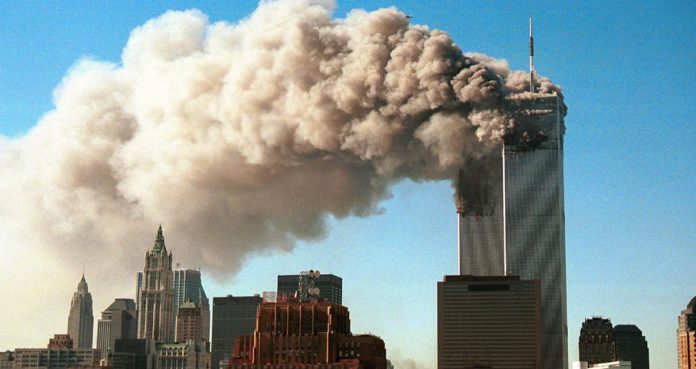It has been 18 years and still the memories of 9/11 attacks are fresh in people’s mind. On September 11, 2001, over 60 percent of Americans watched the worst attacks of terrorism on the nation’s soil over and over again on television, impacting their psyche.
The massive attacks took nearly 3,000 people’s lives, jolting millions of Americans and instilling a great sense of fear, panic, and insecurity.
On the 18th anniversary of this unprecedented event, we still have a big question to consider: How it is still impacting people who were young and closely watched the attacks back then?
Dr. Roxane Cohen Silver, Professor in the Department of Psychological Science, University of California, Irvine, said, “I think that up until that time, perhaps people were more optimistic or certainly had a sense that it couldn’t happen here. Terrorist attacks were something that happened overseas, but not in the United States on our soil.”
“The concept of fearing violence on a day-to-day basis just wasn’t part of the existence of most people in the United States,” continued Dr. Silver.
The professor explained that some people who had no direct connection with 9/11 attacks had symptoms that were previously presumed to be caused by direct exposure to psychic trauma. The symptoms included fear and anxiety. They were also found to have physical health conditions such as cardiovascular problems.
Dr. Silver noted, “Individuals who watched a great deal of television in the first week after 9/11 were more likely to exhibit post-traumatic stress symptomatology and physical health ailments years later.”
“We learned from 9/11 that large-scale events could impact people beyond the directly affected communities, that the events that occurred in New York could impact people in Kansas,” added the professor of psychological science. “The second message we’ve learned from 9/11 was the important role of the media in transmitting that awareness and that potential anxiety.”
Since 9/11 attacks, more and more people have access to images and videos of mass violence attacks – thanks to social media and smartphones. The speed at which these things reach people has increased dramatically.
Referring to a growing number of violent attacks across the nation, Dr. Silver said, “We’re so consumed with new events, you know, current events, hurricanes, mass violence events. And there are many of these that occur, and they’re all tragic. But the psychological effects of September 11, 2019, cannot be directly linked to the 9/11 attacks without considering all of the rest of the things that have occurred.”
Although you cannot control such violent attacks that affect your psyche, experts recommended protecting your mental health by staying away from images and videos of psychologically disturbing tragedies or events.
Dr. Silver said, “I believe that people can be informed without becoming immersed in the media. There’s no obvious benefit to repeated exposure to images and sounds of tragedy. And so, once people are informed, I would say to practice caution in the amount of media attention that they engage and the amount of media exposure that they engage in.” The original article appeared in VOA (Voice of America) News.





















